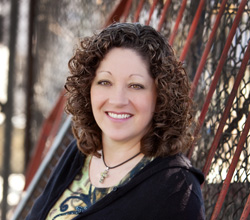 I welcome as my guest writer today, Dineen Miller. Dineen is one of my favorite authors and speakers, as well as a special friend. In my post last week on Forgiving Yourself, I touched briefly on the life of Peter after he denied Jesus. Dineen goes into more detail on Peter’s Restoration. (Cross-posted from her website with Dineen’s approval.)
I welcome as my guest writer today, Dineen Miller. Dineen is one of my favorite authors and speakers, as well as a special friend. In my post last week on Forgiving Yourself, I touched briefly on the life of Peter after he denied Jesus. Dineen goes into more detail on Peter’s Restoration. (Cross-posted from her website with Dineen’s approval.)
Peter’s story of restoration is one of my favorites in the Bible. And I think knowing where he came from gives us even deeper appreciated of his letters which reflect the man of faith he became. So let’s just jump to John 21 and look at the foundation Jesus built in the man we know as Peter.
When they had finished breakfast, Jesus said to Simon Peter, “Simon, son of John, do you love me more than these?”
He said to him, “Yes, Lord; you know that I love you.”
He said to him, “Feed my lambs.” He said to him a second time, “Simon, son of John, do you love me?”
He said to him, “Yes, Lord; you know that I love you.
He said to him, “Tend my sheep.” He said to him the third time, “Simon, son of John, do you love me?”
Peter was grieved because he said to him the third time, “Do you love me?” and he said to him, “ Lord, you know everything; you know that I love you.”
Jesus said to him, “ Feed my sheep. Truly, truly, I say to you, when you were young, you used to dress yourself and walk wherever you wanted, but when you are old, you will stretch out your hands, and another will dress you and carry you where you do not want to go.” (This he said to show by what kind of death he was to glorify God.) And after saying this he said to him, “ Follow me.
This transaction is very symbolic. First Jesus told Peter he would deny Jesus three times, which Peter did. And it is Jesus who also restores Peter, three times. I believe Jesus knew exactly what Peter needed to be able to move forward as the rock upon which Christ’s church would be built.
Just as Peter denied Christ three time, Jesus gives Peter the chance to “choose” him three times thereby reaffirming Peter’s place in relationship to God’s kingdom and also to Christ himself.
But let’s dig a little deeper into the Greek meaning behind the two version of the word “love” used in this passage.
The first time Christ asks Peter, “Simon son of John, do you love me more than these?” he uses agape, which portrays love as volitional (a choice) and self-sacrificing. Peter answers him, “Yes, Lord, you know that I love you.” But he uses phileō, which means a brotherly type of love with common interests.
The second time Christ asks Peter this question, He again uses the agape form (“Do you truly love me?”). And again, Peter answers the same, using the phileō form of love.
Finally, a third time, Jesus asks Peter, “Do you love me?” Only this time he too uses the phileō form of love and in a sense he’s asking Peter, “Are you really my friend?” Peter didn’t quite seem to catch on to what was going on, and though hurt, he affirms his love for Christ in the same form he had the previous two times, phileō.
I wonder if Peter was afraid to confess such devotion out of fear. He’d let his Messiah down once. Was he afraid he would again, that he didn’t have what it took for the long haul? As I read this part of Peter’s history and imagine how he would have felt, I believe his self worth was at an all time low, which gave Jesus the opportunity to not only restore him but to define him.
Peter was about to learn who he was and whose he was—his identity in Jesus. And as we enter into his letters, we will see Peter as the man Jesus created him to be. A man sold out for Jesus because of his agape love for his Messiah.
I love Peter’s story because it reminds me that even in our worst moments, our bad choices, our failures, our losses…Jesus restores us and we can move forward in grace and truth.
And after you have suffered a little while, the God of all grace, who has called you to his eternal glory in Christ, will himself restore, confirm, strengthen, and establish you. — 1 Peter 5:10
Peter shares this bold truth with us because he understood it more intimately than most. On a beach as he sat soaked to the bone with the smell of fish cooking on a fire, Jesus himself restored, confirmed, strengthened and established Peter, the rock on which He would build His church.
Dineen’s BIO
 Dineen Miller is passionate about God’s Word and truth. She’s been featured the Moody Radio Network, Focus on the Family Radio, Dr. James Dobson’s FamilyTalk, FamilyLife Today and INSIGHT on Miracle Channel. Dineen lives in the Bay Area with her family and is the coauthor of the award winning book, Winning Him Without Words and Not Alone: Trusting God to Raise Godly Kids in a Spiritually Mismatched Home. She is also the author of the ACFW Carol Award winning book, The Soul Saver. She and her husband divide their time between the Bay Area (CA) to be near their two adult daughters and son-in-love and Sarasota (FL) to be near their extended family. They love to collect shells and walk the famous white sands of Siesta Key Beach. Visit Dineen online at SpirituallyUnequalMarriage.com.
Dineen Miller is passionate about God’s Word and truth. She’s been featured the Moody Radio Network, Focus on the Family Radio, Dr. James Dobson’s FamilyTalk, FamilyLife Today and INSIGHT on Miracle Channel. Dineen lives in the Bay Area with her family and is the coauthor of the award winning book, Winning Him Without Words and Not Alone: Trusting God to Raise Godly Kids in a Spiritually Mismatched Home. She is also the author of the ACFW Carol Award winning book, The Soul Saver. She and her husband divide their time between the Bay Area (CA) to be near their two adult daughters and son-in-love and Sarasota (FL) to be near their extended family. They love to collect shells and walk the famous white sands of Siesta Key Beach. Visit Dineen online at SpirituallyUnequalMarriage.com.











